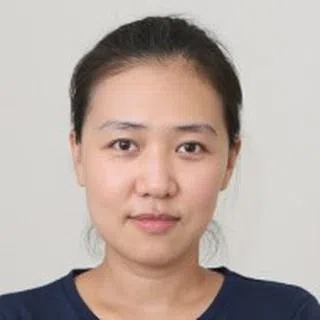[Video] China's young families sending kids to international schools in Thailand
Given the intense competition and rigidity in China's education system, an increasing number of Chinese middle-class families are moving to Thailand and putting their children in international schools there. Zaobao journalist Liu Liu speaks to families and academics to find out more about the factors behind this trend.
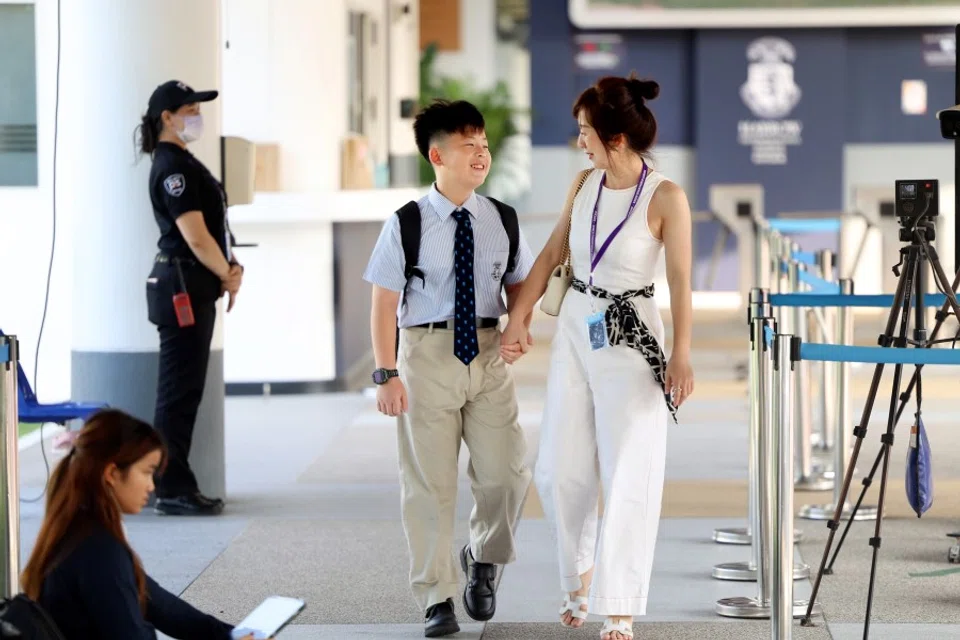
(Photos: SPH Media)
In June last year, 46-year-old Liu Yuan (pseudonym) and her husband moved to Thailand to enrol their 11-year-old son Jackson (杰森) in an international school in Bangkok. Her friends and family thought she was "crazy", but after more than six months of living in the city, she is happy with the decision.
Liu, who left her job in China's media sector a few years ago, said that her son was unhappy studying in China, and was often penalised for running in the school. However, after coming to Bangkok, the school's rich curriculum and sports activities made her son look forward to school every day.
She remarked, "When your child likes school, would you still worry about their academic performance? This is probably what a mother wants to see the most."
Chinese 'villages' around international schools
There are many other middle-class families like Liu's who have moved from first- and second-tier cities in China to accompany their children to study in Thailand, and these Chinese parents have even formed "villages" around the international schools.
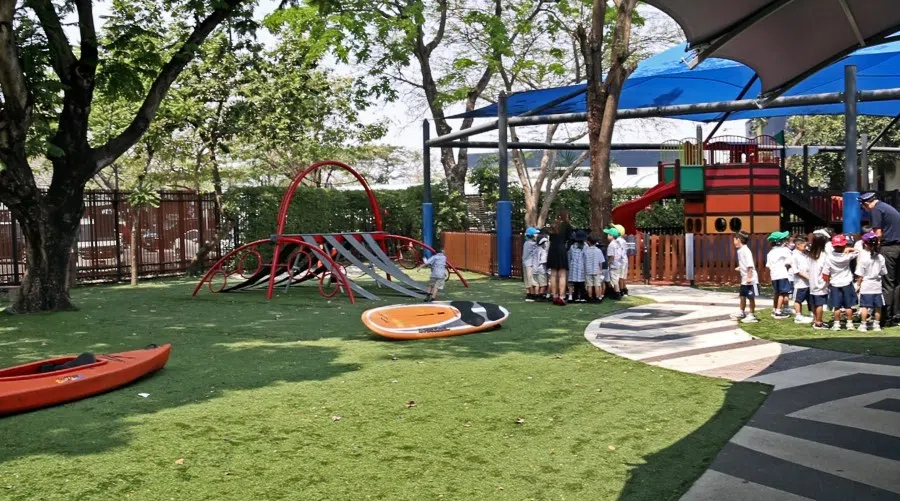
Harrow International School Bangkok where Jackson studies is about a 40 minutes' drive from the city centre. Around the school, the streets are run-down, the roads are bumpy, and there are no decent-sized supermarkets. However, rental prices in the area have risen sharply with the influx of Chinese parents, and housing has become increasingly difficult to find.
Take for example the 200 square metres, two-story villa rented by Liu and her family. The monthly rent increased from about 18,000 Thai baht (about US$523) to about 30,000 baht. Meanwhile, the monthly rent for the new villa community with a lake nearby the school is around 150,000 baht. Indeed, the housing supply has tightened.
Dr Michael Reddish, Harrow's principal deputy head, told Zaobao that with the easing of the Covid-19 situation and reopening of borders, the number of Chinese students is rebounding to pre-pandemic levels.
... there are at least 128 international schools in the country that adopt the British and American education systems. These schools are mostly located in Bangkok, followed by Chiang Mai.
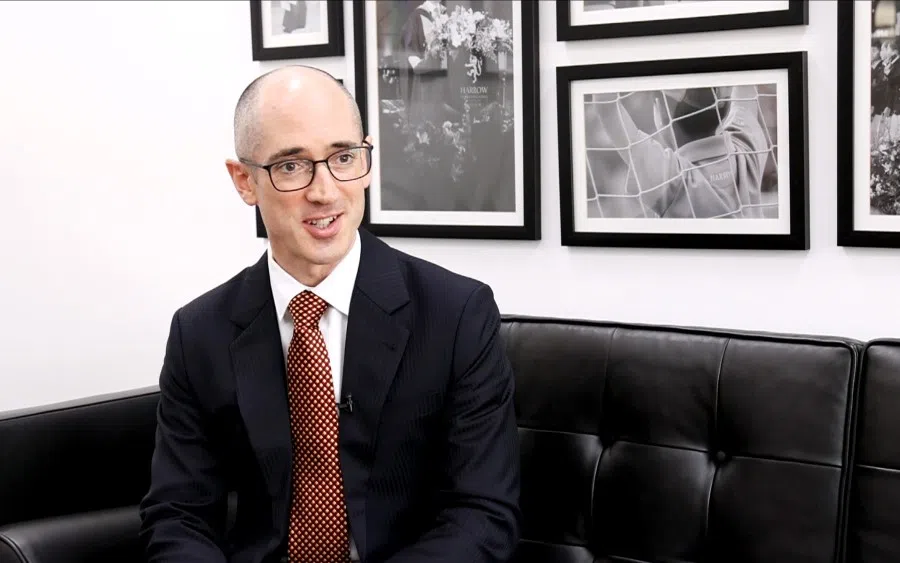
Anneleen Erlingen, the school's director of external relations, said that while the proportion of Chinese students at Harrow is maintained at 5%, there has recently been a significant increase in inquiries from Chinese parents. Almost every week she receives emails from Chinese agencies inquiring about student recruitment.
According to data by education consulting company ISC Research, which studies market trends of international schools, the overall admission rate of Chinese students to international schools in Thailand has increased from 2.1% to 3.2% over the past five years. According to Thailand's International School Association, there are at least 128 international schools in the country that adopt the British and American education systems. These schools are mostly located in Bangkok, followed by Chiang Mai.
Lower costs in Chiang Mai more attractive
Due to factors such as lower costs, Chiang Mai is more popular among Chinese families, and the proportion of Chinese students in many international schools in the city is approaching 40%.
According to the latest data by Chiang Mai education consultancy agency EduVision, the number of Chinese students in Chiang Mai's primary schools has increased significantly in the past three years, with an increase of about 200% year-on-year in 2021 for the 6-7 and 11-13 age groups, and more than 200% in 2022 for the 8-9 and 13-16 age groups.
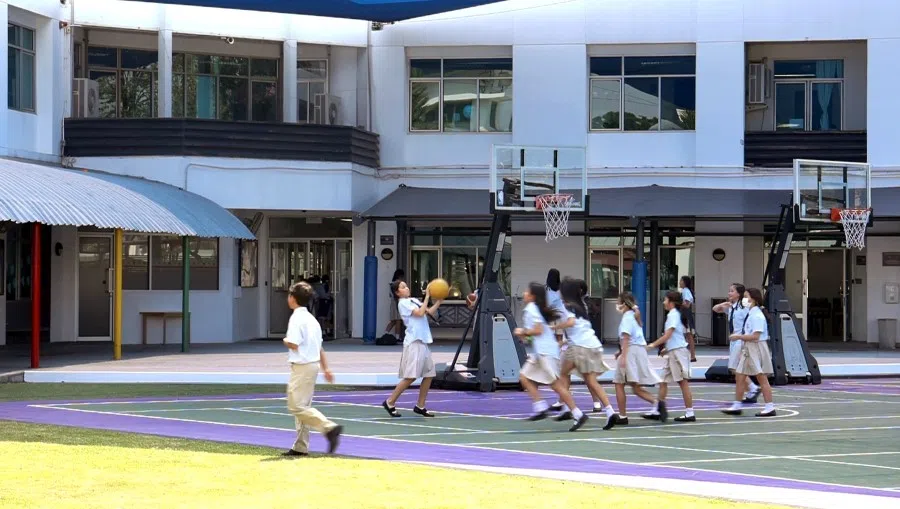
Looking at the streets and restaurants around Nimmanhaemin Road - the busiest area in Chiang Mai also known as Nimman - I observed that Chinese families often go out as a group. From the way they talk and dress, they seem to be long-term residents of the city.
Tam Fawcett, the marketing and admissions director of Prem Tinsulanonda International School in Chiang Mai, told Zaobao that many Chinese families have moved to the city since last year. The number of Chinese students has basically reached the limit as the school has set a quota of 40% for each nationality this year. She noted, "Even so, many Chinese parents still appear at the school gate every day, hoping to visit the campus."
Fawcett added that while the school appreciates the strong interest of Chinese parents, it must maintain a healthy student ratio.
At Harrow International School Bangkok, the annual primary school fee costs 753,900 baht (about US$21,980), while the comparable fee for Harrow in Shanghai is nearly double that, at 290,000 RMB (about US$42,100).
When asked why she chose Thailand, Chen Jing, a 39-year-old mother from Shenzhen and one of the founders of EduVision, said that international schools in China generally cater to foreigners and do not accept Chinese children. Furthermore, Thailand is more likely than other countries to approve visas for both parents. "Of course, cost is also an important factor," Chen added.
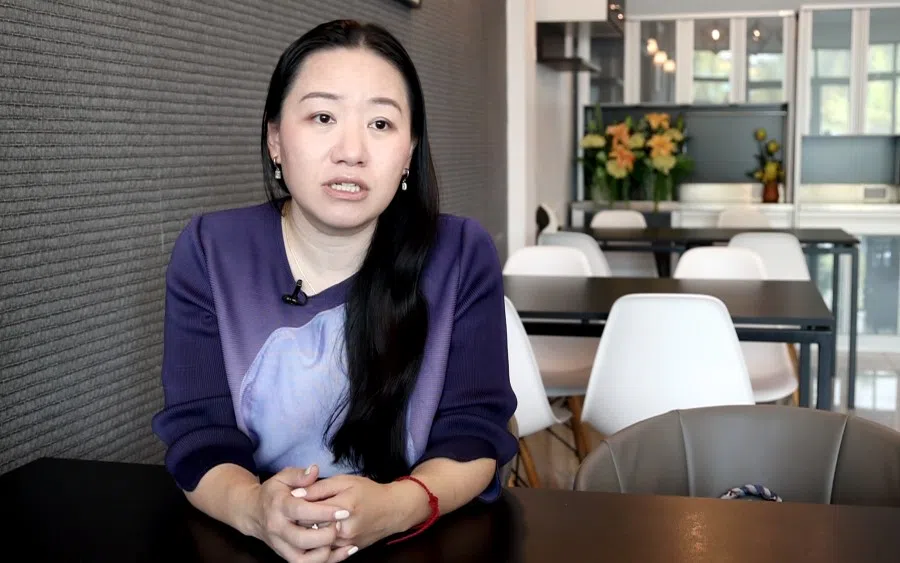
At Harrow International School Bangkok, the annual primary school fee costs 753,900 baht (about US$21,980), while the comparable fee for Harrow in Shanghai is nearly double that, at 290,000 RMB (about US$42,100).
Overall, international school fees in Bangkok are higher than in Chiang Mai. For instance, the annual primary school fee for Prem Tinsulanonda International School in Chiang Mai ranges from just 430,000 to 530,000 baht.
Chen transferred her child from a prestigious public school in Shenzhen to an international school in Chiang Mai five years ago to find new possibilities. In her view, the biggest problem with traditional education in China is that school assessment is based solely on grades. "If a child is not good at academics and cannot score well, their life becomes a dead end. But in reality, life is diverse," she said.
Liu shares similar thoughts with Chen, noting that Chinese education is too rigid and lacks the spirit of independent and critical thinking, which might stifle creativity and imagination in children. She lamented, "There is only one pillar in China, which is grades. If one's grades are not good, one's whole life collapses."
For years, China's exam-oriented education system has been criticised for its single measurement standard and narrow channel for moving up. Parents spare no effort and spend a lot of money for their children to score well and stand out from the crowd, leading to increasingly fierce "involution".
... the phenomenon of Chinese middle-class families flocking to Thailand for their children's schooling highlights their urgent desire to escape from China's education system. - Assistant Professor Yang Peidong, National Institute of Education, Nanyang Technological University
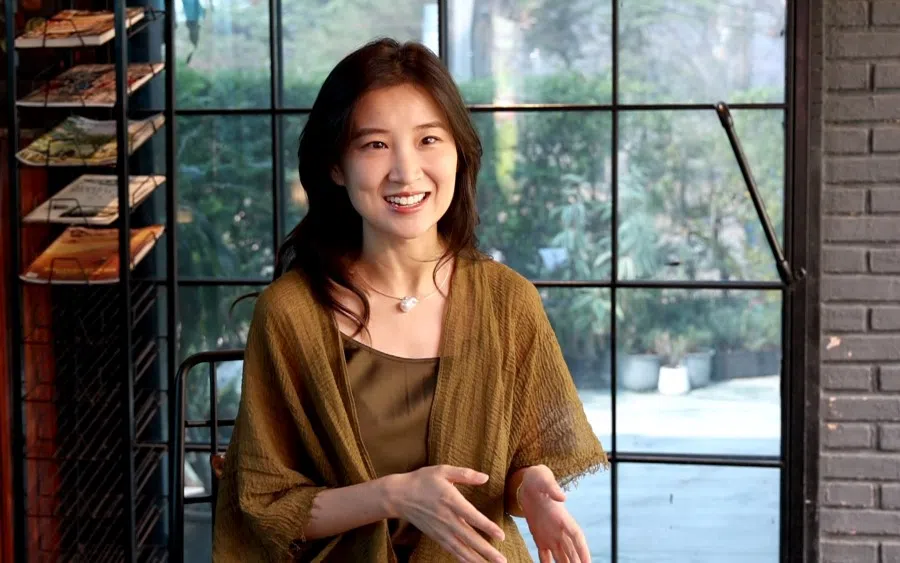
Wu Chencen, a 35-year-old also from Shenzhen, told Zaobao that when she brought her three-year-old daughter to study in Chiang Mai last year, her family asked, "Why go from a developed city to a place where even the electrical wires are exposed?"
Wu is a self-described "good student" who grew up under the Chinese exam-oriented education system, and graduated from an elite school. However, she feels that Chinese education is lagging behind in certain aspects and may not suit the society of the future. As one who prioritises parent-child relationships, she is worried that the pressure and tense environment in China may impact these relationships. She said, "It's like the cinema effect. When the people in the first row all stand up, what can you do but stand up as well?"
Escaping China's education system
Yang Peidong, an assistant professor of humanities and social sciences with the National Institute of Education at Nanyang Technological University, said that the phenomenon of Chinese middle-class families flocking to Thailand for their children's schooling highlights their urgent desire to escape from China's education system.
Yang said that in recent years, China has introduced a series of rather extreme measures in education such as the "double reduction" policy, which reflects that the education sector in China is "at the highest level of involution". As long as families have the means, they will think about finding another way out for their children.
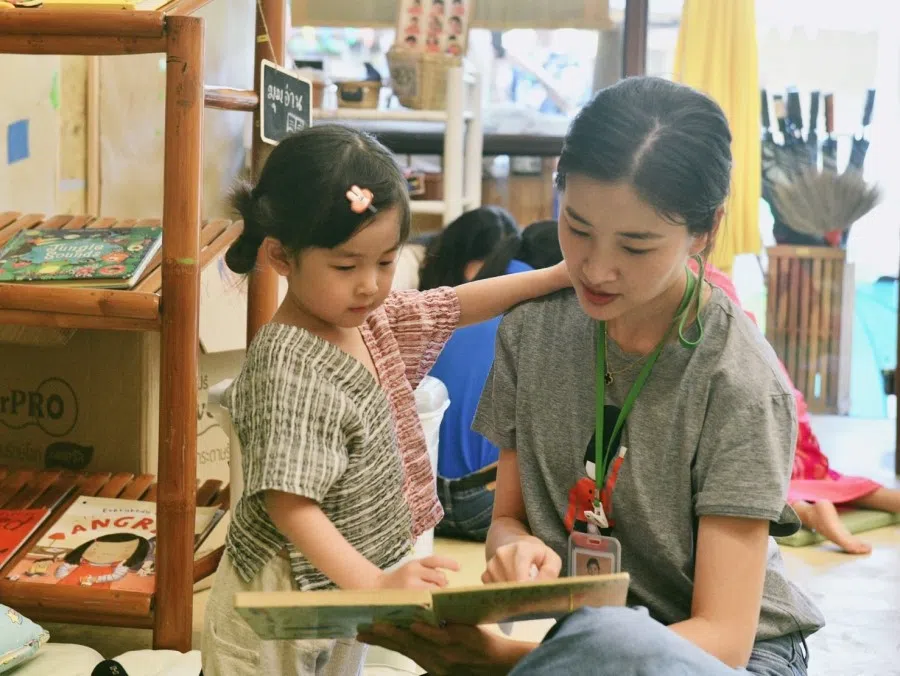
In July 2021, China introduced the "double reduction" policy aimed at alleviating parents' anxiety about education by reducing the burden of excessive homework and after-school tutoring for students. But the policy made parents even more anxious because the assessment mechanism remains unchanged.
Studying in Thailand is not 'lying flat'
The fact that Chinese families are sending their children to study in Thailand to escape education "involution" and excessive assignments has led some people to believe that studying in Thailand is easy and an actual realisation of "lying flat" (躺平). But the interviewed parents beg to differ.
Chen said, "Changing a race track does not necessarily mean that the alternative track is thus easier." If a child is not academically inclined but performs well in the arts or sports, the child still needs to compete with others on that track.
Chen pointed out that parents are in fact unable to "lie flat" after arriving in Thailand because the living environment in the country is very different from that in China, and parents are required to be much more hands-on. At the same time, they need to learn and adapt to new social norms and values to better connect with other international families.
On the day I interviewed Liu, her son Jackson was already awake at 5.30am and off to school at 6am for an hour of tennis lessons. After showering and eating, his lessons began promptly at 7.45am. He also attended the school's special interest classes in the afternoon and only ended his day at about 4pm.
Some Chinese families who have chosen to send their children to study in Thailand see the country as a conducive "transit station", while others consider it as a springboard into the next immigration country.
On top of her son's packed schedule, Liu said that it is also more challenging for them to live in Thailand than in China. As her English was rusty, Liu even had to take English lessons so as to communicate better with the school.
Liu shared that international schools have a wide range of activities, and mothers from various countries often had to prepare local cuisines as a part of the support team. A friend of hers became even busier than when she was working in China after arriving in Thailand as she was brewing milk tea all day.
Liu lamented that she is actually leaving her comfort zone by accompanying her son to Thailand. But as he grows, she is growing too.
Thailand first, Europe and the US next
Some Chinese families who have chosen to send their children to study in Thailand see the country as a conducive "transit station", while others consider it as a springboard into the next immigration country. Interviewed academics pointed out that when the values held by these families are at odds with mainstream Chinese values, going abroad becomes a natural choice.
Over the past two years, the term "run philosophy" (润学) - an online term referring to an exodus from China to other developed countries or territories - became extremely popular on the Chinese internet. "Run philosophy" gained popularity again when Shanghai was placed under lockdown in April 2022, and many Chinese families made a "run" to Thailand.
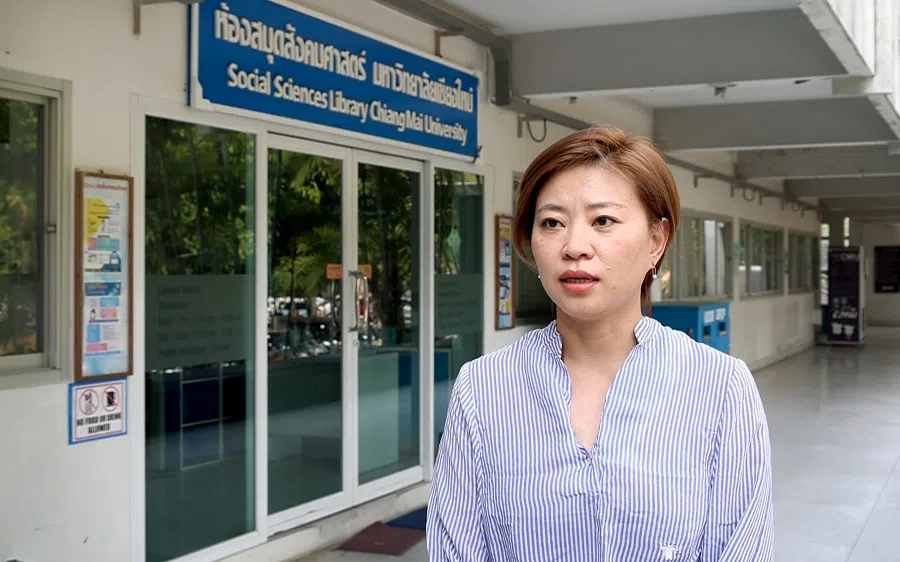
In the course of her research, Niu Yafan - a PhD candidate and recipient of the Presidential Scholarship under the international programme at Chiang Mai University's Faculty of Social Sciences - came across several families who took the chance and came to Chiang Mai in spite of the pandemic last year.
Harrow's Erlingen also pointed out that among the school's increasing number of inquiries from Chinese parents, a growing number of questions are about the enrolment of younger children.
Lu Xi, an assistant professor at the Lee Kuan Yew School of Public Policy, National University of Singapore, noted that Chinese parents are sending their children away to study at increasingly younger ages. However, he thinks that this trend reflects the values of parents themselves - it is not that the children are unable to adapt but that the parents are voting with their feet.
Lu is not surprised that Chinese parents have chosen to send their children to international schools in Thailand because "they receive the same amount of recognition as international schools in China". In comparison, international schools in other parts of Asia, such as Singapore and Hong Kong, may not even have enough places, on top of their exorbitant fees.
Lu analysed that the middle-class families, of which the parents are mostly made up of the post-70s and 80s generation, have more access to information, and they know what's happening around the world. As soon as they begin to feel the squeeze, they will naturally panic and worry about their children, and will try every possible method to send them elsewhere.
... the education of the next generation is "a systemic problem" that they cannot solve. Not wanting to be held hostage by such an education system, they will choose to "escape". - Niu Yafan, PhD candidate, Faculty of Social Sciences, Chiang Mai University
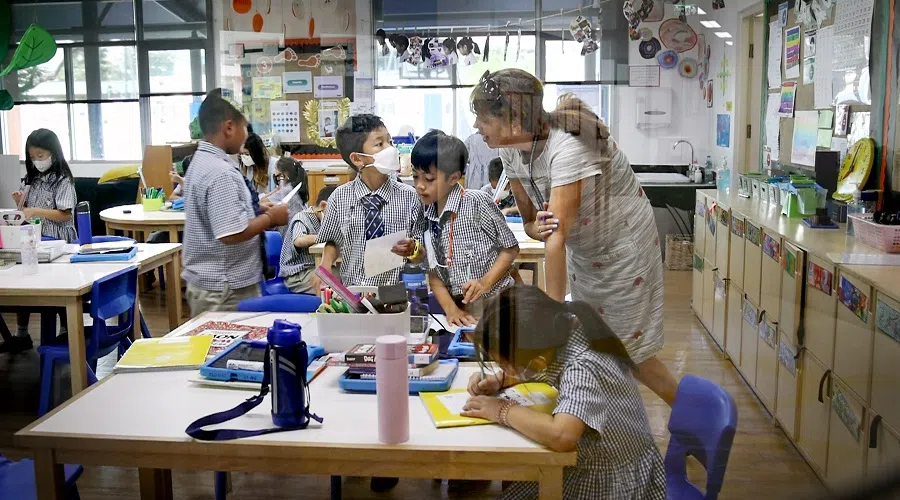
Chen said that many families already have plans to immigrate to Europe or the US when they enrol their children in Thai schools. She considers Thailand as a transit station and has already applied for permanent residency in Canada for her son.
Niu noted that while middle-class Chinese families have certain social resources in China and are able to live a relatively affluent life, they generally feel that the education of the next generation is "a systemic problem" that they cannot solve. Not wanting to be held hostage by such an education system, they will choose to "escape".
The interviewed Chinese parents admitted that they would not rule out the possibility of sending their children to study in Europe or the US in the future. Depending on their needs and those of their children, they will choose between the American, British or IB (International Baccalaureate) programmes offered by international schools for better future alignment.
However, not all families who chose to study abroad in Thailand end up "running away" - some do return to China. Wang Tao, 41, enrolled her five-year-old daughter in a school in Chiang Mai during the pandemic, but the family returned to Beijing a year later.
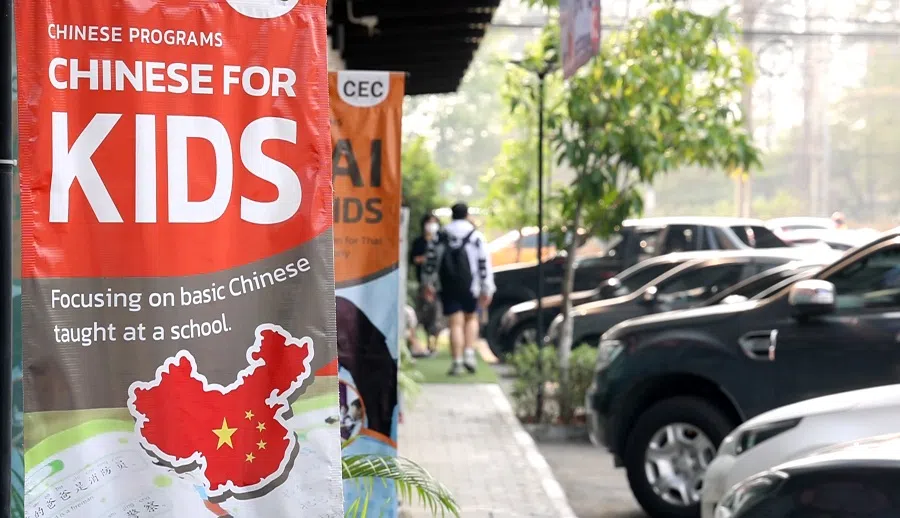
Unlike other interviewed parents, Wang endorses China's compulsory education more and also believes that China will offer more development opportunities in the future. She is worried that her young daughter will not only forget their mother tongue if they stay abroad for a long time but also become unfamiliar with traditional Chinese culture and find it difficult to integrate back into Chinese society in the future.
However, Wang still plans to send her daughter to study abroad in the future when she is in middle school.
To go or not to go?
The interviewed families either have their own careers or run a business in China, and achieved some wealth from riding the wave of China's economic boom. Hence, they can maintain an affluent and comfortable lifestyle while relocating to a foreign country to accompany their schooling children.
However, studying in Thailand is not a bed of roses. Liu from Chengdu initially thought that she had escaped from the involution in China. But after she arrived in Thailand, she found that the Chinese mothers there are all capable women who have learned English on their own, attended various seminars, and can even whip up a plethora of scrumptious meals. Liu said she once broke down in tears, feeling overwhelmed by the pressure.
But she believes that these pressures can be coped with, unlike the shortcomings of China's education system that are out of the parents' control.
Perhaps sending their children to study in Thailand is just part of the journey for these middle-class families, and there are still many question marks on the road ahead. But this step that they took in escaping China's domestic environment and embracing the world is certainly a firm exclamation mark.
This article was first published in Lianhe Zaobao as "送年幼孩子留学泰国 中国中产家庭盼什么?".
Related: Rising Chinese student enrolment in Thailand: Cash cows at a cost | Chinese investment into Thai private universities: The need to keep standards up | Parents and teachers brace themselves for China's new school year under the 'double reduction' policy | China's tutoring crackdown: Is the Chinese government prepared for its consequences? | A Chinese education: Why are Chinese parents and kids going to extremes? | Faster, higher, stronger: China's kids pushed to breaking point
